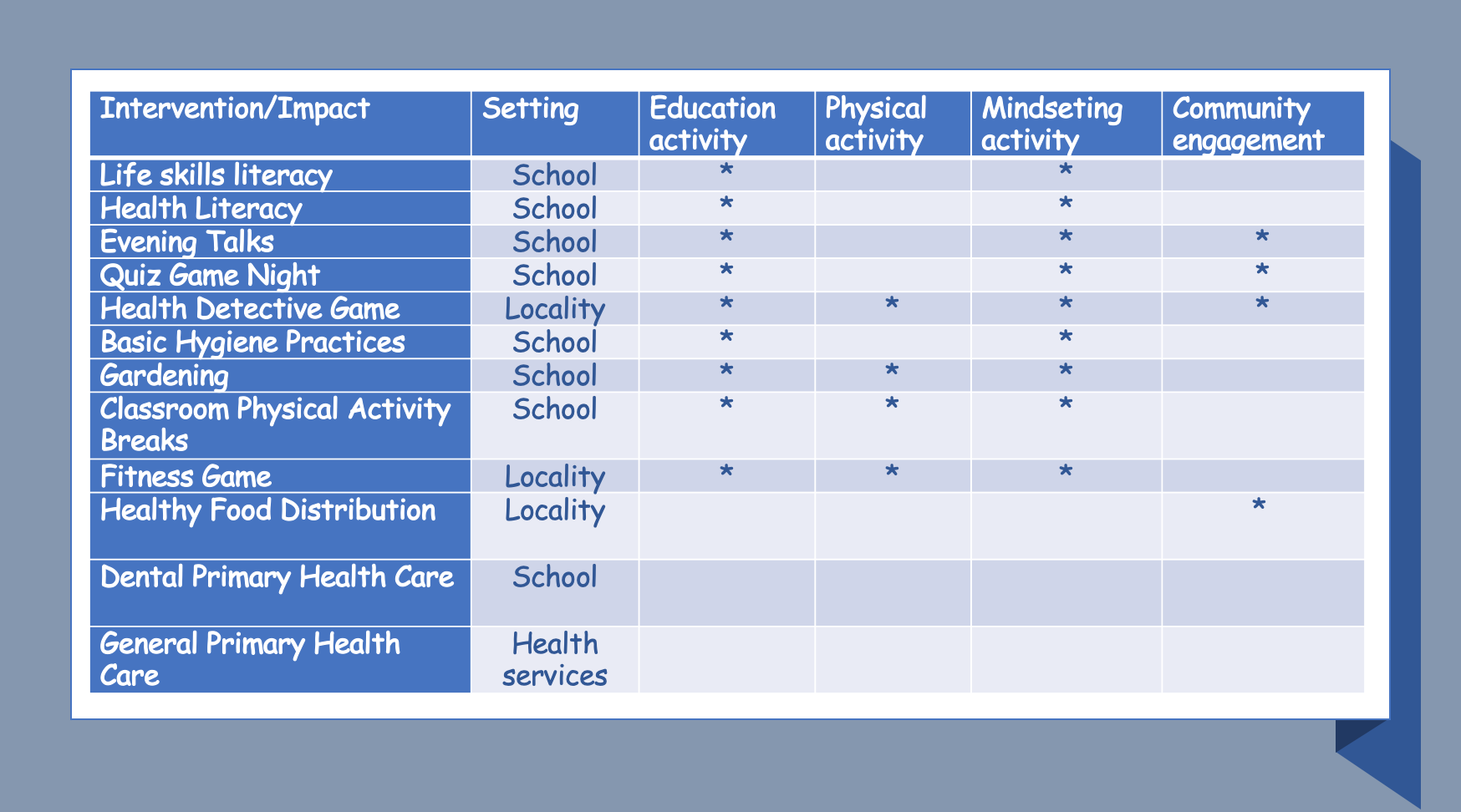An Overview of the AHI Health Promoting School model
The implementation of AHI HPS programme uses an incremental approach by age, to avoid the high cost of including the whole school population at once. Instead, it adds a new school cohort annually. Ideally, this starts with the 6-8-year-old cohort, engaging them in the programme in subsequent years while adding the new 6-year-old cohort in subsequent years until all school children are enrolled in the programme. The AHI HPS rolling programme enrols the first cohort of children in several interventions to promote education, health and wellbeing, and continues consolidating them throughout school age (childhood to adolescence). The programme is implemented in two stages as the content of the interventions are age-related. The programme uses the life course framework as a structure for timing each content. The content of the interventions in the first stage applies 6-10 year-old children. It provides medical-dental treatment through Primary Health Care services to all children enrolled in the programme, and ten interlinked health promotion interventions, which impacts in five relevant outcomes: physical health, mental health, mindset, community engagement, and education. The table above shows the list the interventions and inform on impact of the activity.
In the second stage, when participants are 11-16 years old, the programme introduces new contents in the education activities that are associated with behaviours acquired at adolescence such as smoking and drinking habits, as well as sexuality contents. This is in addition to continuing reenforcing previous contents. It also introduce a new intervention named mental health services. Adolescence is a challenging emotional period in human development, thus a time young people may need and benefit from mental health services, in addition to the continuation of promoting a positive mindset.
Furthermore, the AHI HPS programme engages the community in three interventions: evening talks, quiz game night and health detective game, and distributes healthy food to the families of school children participating in the programme.
The implementation of the AHI HPS intervention was tested using implementation research methodology. The findings of the study carried out among stake holders demonstrated that the intervention was considered appropriate to the locality (Appropriateness domain), agreeable (Acceptability domain) and it was adopted (Adoption domain). It was concluded that the AHI HPS programme can be successfully implement in low-income localities. (LEARN MORE>)

